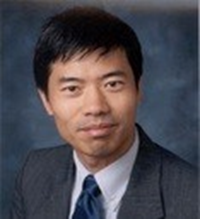-
Session S-01: Process Control
Done
-
Session S-06: Advanced Control Solutions for Nonlinear Systems
Done
-
Session S-11: Energy Control and Optimization
Done
-
Opening Ceremony & Keynote 1
Done
-
Session S-10: Predictive and Optimal Control
Done
-
Session S-23: Modeling and Simulation with applications
Done
-
Session V-01: Applications based Neural Networks
Done
-
Session V-12: System Identification
Done
-
Session S-47: Special Session: Efficient Training Paradigms for Edge Devices: Balancing Memory and Time Constraints
Done
-
Session S-48: Mobile, Wireless Communications, and Telecommunication Applications
Done
Autoencoder-embedded Evolutionary Algorithmsfor High-dimensional Expensive Optimization Problems
Prof. MengChu Zhou
(Fellow of IEEE, IFAC, AAAS, CAA and NAI)
New Jersey Institute of Technology, USA
Chair: Prof. Maria Pia Fanti, Polytechnic University of Bari, Italy Room: Aula Magna
Abstract
A High-dimensional computationally Expensive Problems (HEPs) in which a single fitness evaluation consumes hours or even days have attracted much attention from both academia and industry. Exponentially expanding search space and complex landscape brought by numerous decision variables make HEPs extremely challenging to be solved by traditional algorithms with limited physical/computational resources. Therefore, an Autoencoder-embedded Evolutionary Optimization (AEO) framework is invented to deal with them. To be specific, high-dimensional search space can be compressed to informative low-dimensional space by using an autoencoder as an effective dimension reduction tool. The search operation conducted in this low-dimensional space facilitates the population in convergence towards the optima. To balance the exploration and exploitation ability during optimization, two sub-populations are adopted to coevolve in a distributed/parallel fashion, wherein one is assisted by an autoencoder and the other undergoes a regular evolutionary process. Dynamic information exchange is conducted between them after each cycle to promote population diversity. Moreover, surrogate models can be incorporated into AEO (SAEO) to further boost its performance by reducing unnecessary fitness evaluation. Compared with the state-of-the-art algorithms for HEPs, AEO shows extraordinarily high efficiency for these challenging problems while SAEO can greatly improve the performance of AEO in most cases, thus opening new directions for various swarm optimization and evolutionary algorithms under both AEO and SAEO to tackle HEPs and greatly advancing the field of high-dimensional computationally expensive optimization. Their recent applications to mobile edge- computing systems, human-cyber-physical systems, and production scheduling are also illustrated.
Biography of Prof. MengChu Zhou

MengChu Zhou received his
B.S. degree in Control Engineering from Nanjing University of Science and
Technology, Nanjing, China in 1983, M.S. degree in Automatic Control from
Beijing Institute of Technology, Beijing, China in 1986, and Ph. D. degree in
Computer and Systems Engineering from Rensselaer Polytechnic Institute, Troy,
NY in 1990. He joined New Jersey
Institute of Technology (NJIT), Newark, NJ in 1990, and has been Distinguished
Professor in Electrical and Computer Engineering since 2013. His research
interests are in Petri nets, intelligent automation, AI, Cloud/edge Computing, Internet of
Things,
big data, web services, and intelligent transportation. He has over 1200 publications including 17 books, 850+ journal papers (650+ in IEEE transactions), 31 patents and 32 book-chapters. He is the founding Editor of IEEE Press Book Series on Systems Science and Engineering, and Associate Editor of IEEE Internet of Things Journal, IEEE Transactions on Intelligent Transportation Systems, and IEEE Transactions on Systems, Man, and Cybernetics: Systems. He was Editor-in-Chief of IEEE/CAA Journal of AutomaticaSinica (2018-2022). His present Google citation count is well over 67000 with h-index being
132. He was ranked #99 in the world among the 2023 Top 1000 Scientists in Computer Science in the World by Research.com. He is a life member of Chinese Association for Science and Technology-USA and served as its President in 1999. He is a Fellow of IEEE, International Federation of Automatic Control (IFAC), American Association for the Advancement of Science (AAAS), Chinese Association of Automation (CAA), and National Academy of Inventors (NAI).